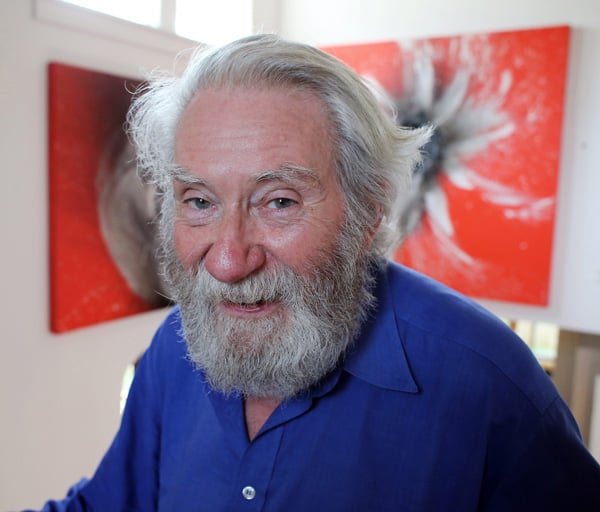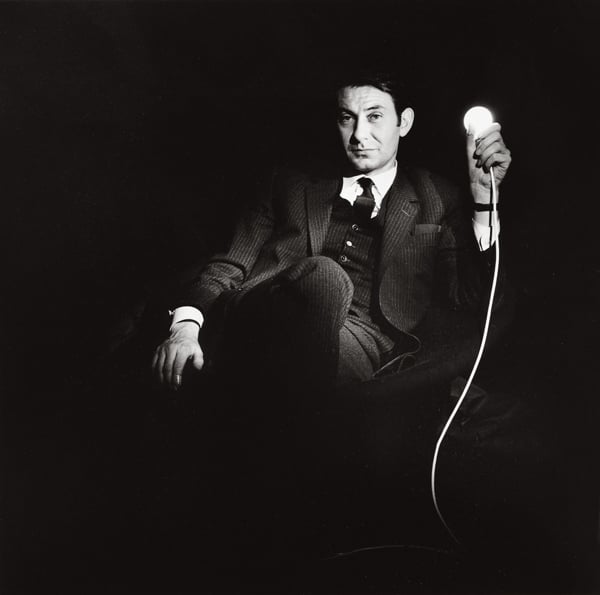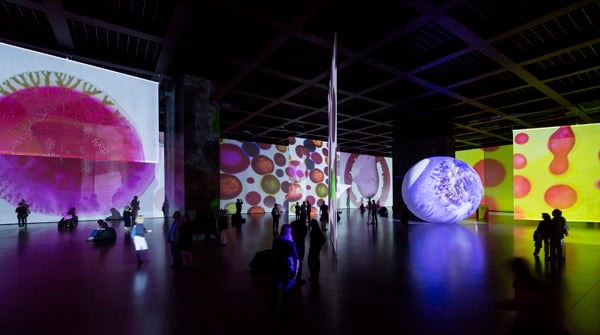Art World
Otto Piene, ZERO Group Founder, Dead at 86
He was installing a major exhibition in Berlin.

He was installing a major exhibition in Berlin.


Otto Piene (late 1960s)
Photo: Lothar Wolleh © Oliver Wolleh, Berlin
Otto Piene, a giant of post war art in Germany and founder of the renowned ZERO group, has died at the age of 86. Piene was in Berlin for the opening of his major retrospective More Sky, which spans both the Neue Nationalgalerie and the Deutsche Bank Kunsthalle. He spoke at the opening of the exhibition on Wednesday evening and was in the midst of preparing Sky Art Event, which was scheduled to take place on Saturday evening in the sky above the Neue Nationalgalerie. According to the Berliner Morgenpost, Piene died while in a taxi on his way to continue those preparations. Those who accompanied him in the past several days said he was “so happy and satisfied,” and noted that Piene still had many more projects in the works. The exhibition runs through August 31st; at the time of writing, the Neue Nationalgalerie had not confirmed if the Sky Art Event would go on in the artist’s absence.
Born in 1928, Piene grew up in the small German city of Lübbecke. At the time of his death, he lived and worked at a farm in Groton, Massachusetts with his wife, Elizabeth Goldring-Piene, but often traveled back to his former home-base in Düsseldorf. It was there that Piene and Heinz Mack founded the ZERO group in 1957, with Günther Uecker joining them in 1961. The group has exerted immeasurable influence on contemporary art practice in Germany and has seen remarkable growth on the market over the past several years. In 1960, Piene explained the group as representing, “the immeasurable zone in which an old state passes over in a new one,” later writing in their 1963 manifesto for Neuen Idealismus (the new idealism), “Zero is silence. Zero is the beginning.” The Guggenheim will celebrate the trio with the first large scale survey of their work in the US, opening in October of this year.

Otto Piene, The Proliferation of the Sun (2014), Installation view Neue Nationalgalerie Berlin
Photo: David von Becker
Piene is perhaps best known for his Rauchgemälde (smoke paintings), for which he lightly burned the surface of the paintings with candles and gas torches, and Feuerbilder (fire pictures), for which he would burn pigment paper and use the resulting soot on canvases. Both series began during the ZERO period and continued through his death.
Following the breakup of the ZERO group in 1967, Piene became interested in what he would later term Sky Art. The works, like that which was supposed to take place in Berlin this Saturday, used the land- and cityscape as backdrop for inflated, often-illuminated sculptures. Particularly notable was his installation at the closing ceremonies of the 1972 Munich Olympics Olympic Rainbow for which five colored helium tubes, each measuring 600 meters long, created a monumental arch.
Piene participated in three Documenta (1959, 1964, and 1977) and represented Germany in both 1967 and 1971 at the Venice Biennale. He was awarded the UNESCO Joan Miró Medal in 2003. From 1974–1990 he served as the director of Massachusetts Institute of Technology’s Center for Advanced Visual Studies. Among his more than 100 institutional presentations, major exhibitions included Mack, Piene, Uecker. ZERO (1965) at the Kestner-Gesellschaft, Hanover, adapted from an eponymous show at the Howard Wise gallery in New York the year previous, and retrospectives at the Kunstmuseum Düsseldorf in 1996 and the Museum am Ostwall in 2008.

Otto Piene (2013)
Photo: Peter Müller / Bild-Zeitung